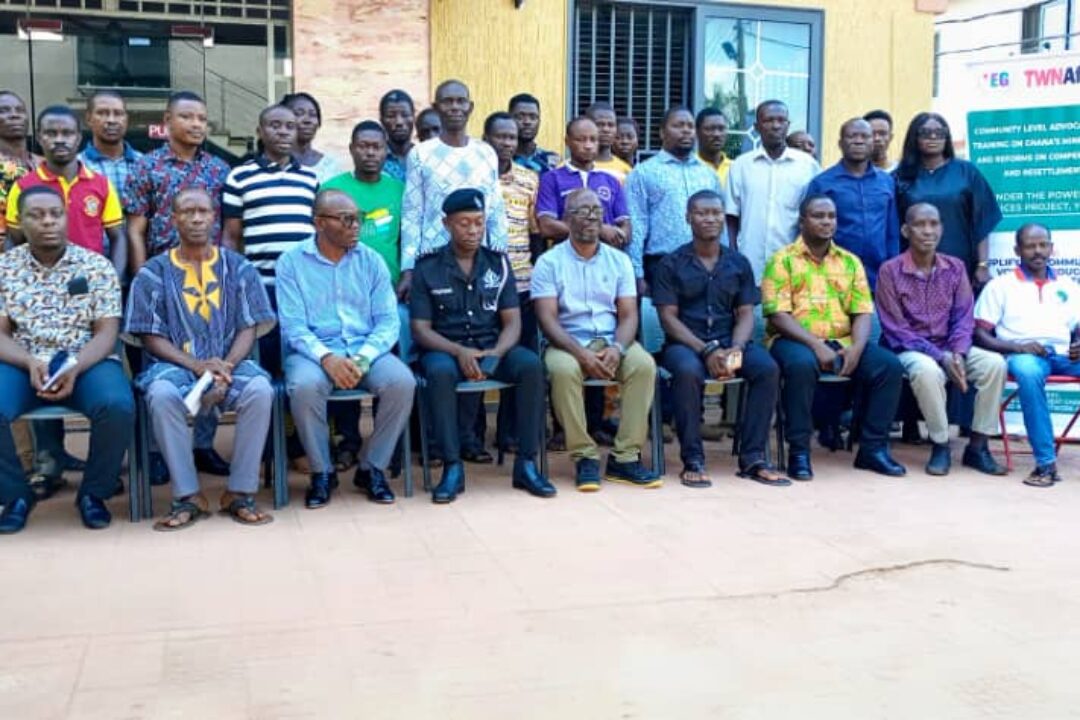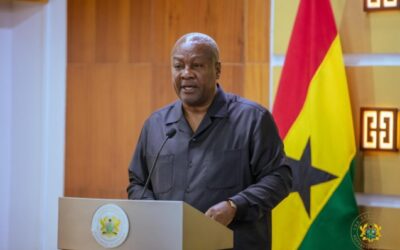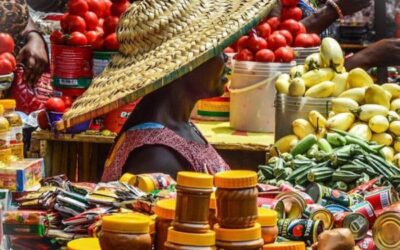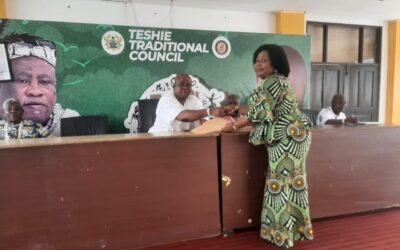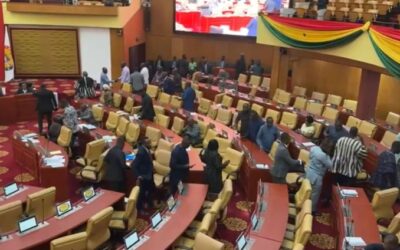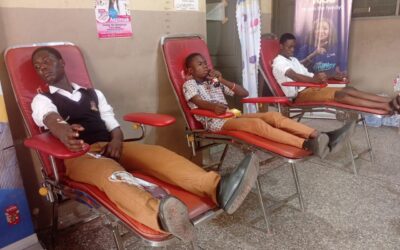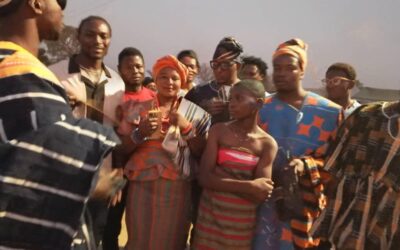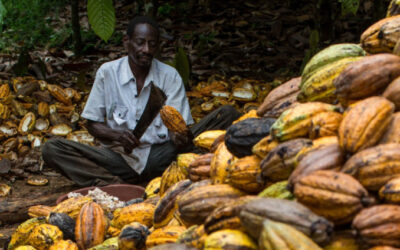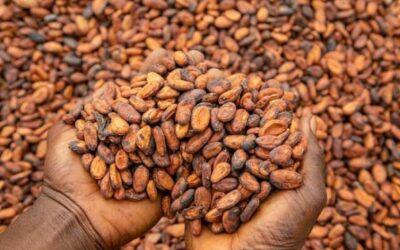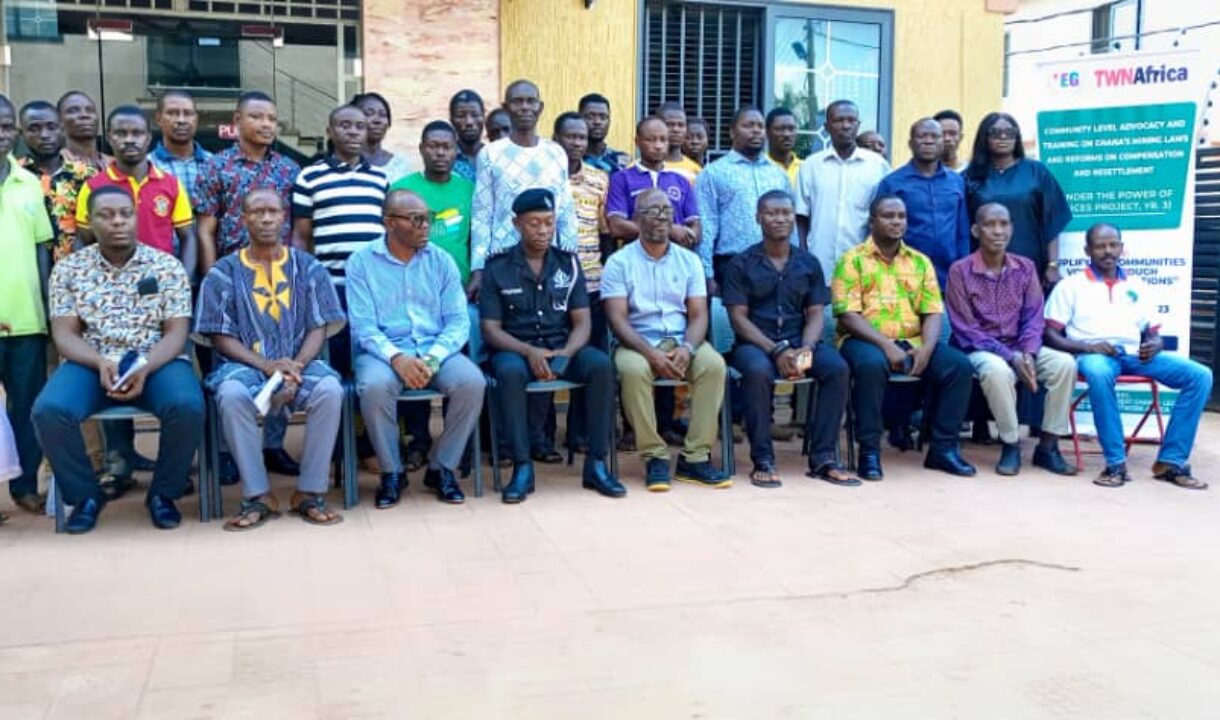Series of capacity-building and training workshops, have been organized for mining affected communities in seven(7) mining affected regions in Ghana; namely Bono, Western, Ashanti, Western North, Ahafo, Central and Eastern.
The training workshops brought together various stakeholders in the communities including youth, women, girls, traditional leaders, Civil society organizations, women groups, farmers, Assembly and Unit Committee members, religious leaders, mine workers, media and government institutions such as CHRAJ, NCCE, MMDAs Staff, MOFA, Dept of Social Welfare and Ghana Health Service.

The project was organized by Livelihood & Environment Ghana -LEG in partnership with Third World Network-Africa under the Power of Voices in Fair for All Project with financial support from Dutch Ministry of Foreign Affairs.



The training built participants capacity on their rights as citizens when it comes to mineral exploitation.
They were also abreast with the various legal reforms on compensation and resettlement such as the right to prompt payment of fair and adequate compensation and better resettlement package (Article 20 clause 2a of 1992 Constitution), right to training and recruitment (Section 50 (1,3) of the Minerals and Mining Act 703), right to respect (UN Guiding Principles on Business and Human Rights 2011), access to equitable sharing of financial and developmental benefits (Minerals and Mining Policy Ghana, 2014).


According Mr. Richard Adjei-Poku, Environmental Scientist and Human Rights Activist and resource person for the training indicated that both Article 20 (2a) of the 1992 Constitution of the Republic of Ghana and Section 73 (1), Minerals and Mining Act 703 (Act 703, 2006) mandate companies to exercise prompt payment of fair and adequate compensation to persons whose properties (buildings, crops and land would be affected by mining operations.
“Again, Mining Regulation 2012 Compensation and Resettlement Regulation L.I 2175 section 4 (2) also mandates companies to pay property owners within three months after an amount of compensation have been agreed by parties and defaulted companies are legally mandated to pay 10 percent interest anytime compensation remains unpaid.
He said Section 100 (1), Minerals and Mining Act (Act 703, 2006) and UN Guiding Principle on Business and Human Rights (2011), compel governments and the regulatory agencies to ensure proper implementation and companies’ compliance with the mining laws including respect for human rights.
The training also built the participants capacity on how they could get adequate compensation from their crops, land and properties that may be destroyed by mining companies.
Among the models to enhance adequate compensation highlighted by the Resource Person include “Good pricing (Abochi price), Application of Compensation principles in section 74 of the Minerals and Mining Acts (Act 703, 2006) which include savage cost, deprivation of use, loss of earnings, loss of expected income, life expectancy of the crop and benefits that cannot be assessed in monetary terms such as scholarships for children, access to loan facilities, prestige, access to desired partner (wife or husband) etc.
Mr. Adjei-Poku emphasized that, Ghana is blessed with a lot of mineral resources such as gold, Bauxite, iron ore, manganese, diamond, Oil and other industrial minerals such as limestone, brown clay, silica, sand, salt, quartz and others. Ghana now is the largest producer of gold in the sub-Saharan Africa.
Contribution from the mineral sector particular oil and gold cannot be under-estimated. Newmont Ghana Gold Ltd alone in the first quarter of 2023 paid 843.72 million Ghana Cedis in taxes, royalties and levies to the Government of Ghana through Ghana Revenue Authority (Daily Graphic, page 44, February 2, 2024).
Unfortunately, excessive exploitation of our mineral resources has not translated in the lives of the people of Ghana (African Mining Vision, 2009).
The minerals sector according to CHRAJ Report (2008) titled “Experience from Ghana on Mining and its Impact on Human Rights” revealed that, the sector is the highest human rights violator.
The report disclosed violent, illegal arrest, and detention of community members. Torture of persons illegally arrested and detained.
The report also revealed assaults, battery and interference, inadequate compensation of properties destroyed, health problems, unacceptable alternative livelihood projects, reckless spillage of cyanide and unfulfilled promises of employment, destruction and pollution of communities’ water bodies leading to biodiversity loss among others.
In spite of the CHRAJ intervention and interventions and efforts by many Civil Society Organizations including National Coalition on Mining (NCOM), Third World Network-Africa, Ghana Network on Environment, Society and Corporate Accountability (GHANESCA), STAR Ghana Foundation, Livelihood & Environment Ghana (LEG) among others, the abuses mentioned above are continuously taking place in the communities affected by mining operations; Mr. Adjei-Poku stated.
Photography of one of the workshops
LEG is a research and advocacy Not-for-profit and Non-governmental organization established in 2004 (20 yrs old) to promote community rights and minerals governance, Provide sustainable livelihood skills for marginalized persons in society and promote environmental sustainability including climate change awareness creation and education and biodiversity conservation.
LEG operates mainly in seven regions in Ghana namely Bono, Ashanti, Central, Western, Ahafo, Western North and Eastern. The organization since 2004 has been operating with voluntary staff and community volunteers.

